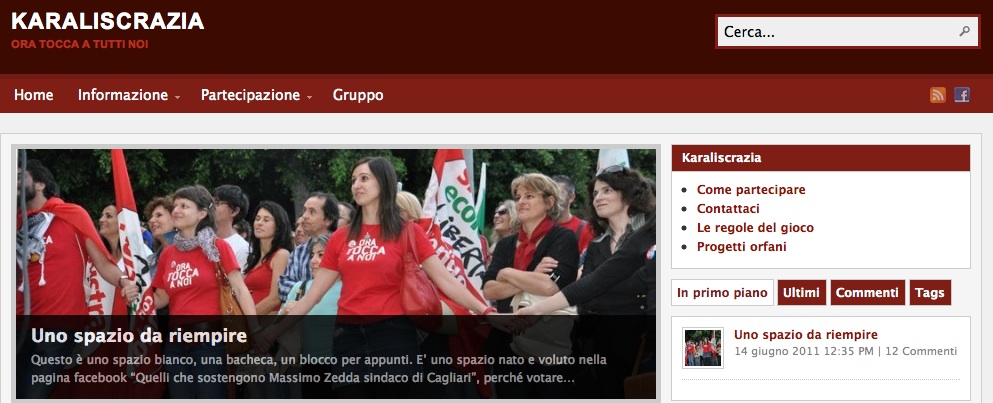Da diversi anni partecipo a vari social networks. Ma non ho mai smesso abbandonato i blog, nè come blogger nè come lettore, e non ho nessuna intenzione di farlo. Dopo settecento post e duemila commenti, sono molto grato al mio blog: mi ha messo in contatto con persone e idee che sono diventate importanti per me (tra l’altro, gli devo il mio lavoro attuale). Scrivere mi aiuta a organizzare i pensieri, e a non perdere il filo di un percorso che non è sempre lineare.
Ma sono anche grato ai blog altrui. Negli anni i blog che leggo sono cambiati quasi tutti (anche perché alcuni che seguivo hanno chiuso i battenti, come quello di Luca e Mafe); ma continua a piacermi il rapporto che ho con i blogger che leggo, certo intellettuale ma stranamente intimo. Nel confronto serrato e prolungato nel tempo con una persona e le sue idee mi sembra di riuscire meglio a fare crescere le mie. Voglio quindi dedicare questo post alla seconda generazione del mio blogroll, i blog che leggo (e commento) adesso, in pieno spirito del 2004 e della breve età dell’oro del blogging.
Sui temi delle politiche pubbliche Internet e del governo aperto continuo a leggere David Osimo. David scrive da Bruxelles, e ha una bella prospettiva europea, anche se nell’ultimo anno, credo preso da altro, ha scritto meno che in passato. Da qualche mese ha ripreso a scrivere anche Beth Noveck, dopo una lunga pausa durante la quale ha diretto il progetto open government alla Casa Bianca di Obama: spero non si stanchi di nuovo, il suo contributo è davvero importante.
Grazie a Dave Kusek e a Francesco D’Amato riesco a tenere nel radar anche l’economia industriale della musica, uno dei miei primi interessi professionali. Il primo, americano, insegna alla Berklee School e ha una prospettiva generale sulle tendenze di mercato; il secondo, italiano della Sapienza, si interessa in particolare di crowdfunding: su questo tema è diventato molto esperto. Leggo anche un paio di blog tecnologici: quello di Alberto D’Ottavi, uno dei primissimi blog che abbia mai letto, e quello di Vincenzo Cosenza, molto forte sul tema Facebook e social media.
Sono un lettore fedele anche di due blog non specialistici ma ben scritti e che mi fanno pensare pensieri per me insoliti. Uno è quello dello scrittore di fantascienza britannico Charles Stross: intelligente, immaginoso e speculativo come solo la migliore fantascienza sta essere. L’altro è stato aperto recentemente dall’economista italiano Tito Bianchi, una specie di Tristram Shandy dell’economia che salta con leggerezza da un argomento all’altro riuscendo sempre interessante. Infine, se usate Google Reader, vi consiglio di seguire Costantino Bongiorno (si autodefinisce “engineer and troublemaker”). È troppo timido per tenere un proprio blog, ma fa un ottimo lavoro di filtraggio e condivisione dei blog che si occupano di hardware hacking, Arduino e affini. Grazie, amici bloggers, continuate così.
E voi? Volete suggerirmi qualche bel blog?
